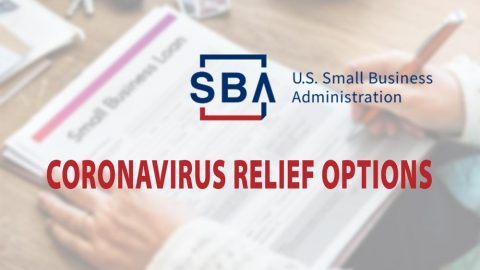Due to the recent U.S. Supreme Court decision in South Dakota v. Wayfair, many U.S. states have passed Economic Nexus legislation which may require all businesses, both foreign and domestic, to collect U.S. sales tax. The term “Nexus” is defined as a connection between the business and the state. Historically, in order for a state to impose sales tax collection on an out-of-state business, the business must have some sort of physical presence in the state. The term “physical” presence has many different definitions and may vary by state.
Under the new Economic Nexus legislation, a business must register to collect and remit sales tax in a state if they have reached a certain income (revenue) threshold in that state. Therefore, there are several types of sales tax nexus creating activities that a business owner needs to take into consideration, and each state has different nexus creating thresholds.
Let’s start with the basic sales tax nexus criteria which is “Physical Presence“. If a business has physical presence in a state that activity will most likely give that business sales tax nexus and they will be required to hold a sellers permit and collect sales tax on all taxable transactions in that state. Physical presence can be described/defined as: Brick-and-mortar location, employee, inventory, sales rep (including independent 3rd party reps), trade show attendance, board meeting/retreat, on-site training or installation, essentially any physical activity in that state that constitutes solicitation of a potential customer in the state. This is not an all-inclusive list of physical presence activity, but it will give your readers an idea on the types of activity that could create nexus for sales tax collection purposes. If the business does not have any “physical” presence in a state, there are other business activities that could require a business to register for a seller’s permit.
For those states that have imposed Economic Nexus legislation, the minimum dollar amount varies from state-to-state and can be as low as $10,000 to as high as $500,000 in total gross or taxable sales over the past 12-months.
If a business sells goods to a U.S. distributor and the U.S. distributor turns around and sells the goods to their customer, then the distributor is the retailer of those goods. In light of the new Economic Nexus legislation, the business may still meet the revenue threshold in that state which may require the business to hold a seller’s permit. However, as long as the U.S. distributor provides a valid Resale Certificate to the business for their purchase of the goods, then the business will not be required to charge sales tax. However, if the business ships goods to a U.S. fulfillment center then the business may have physical presence in that state due to inventory and will be required to hold a seller’s permit
Although sales tax is generally imposed on the sale of tangible personal property unless specifically exempt, Services on the other hand are generally not subject to sales tax unless specifically taxable. Therefore, depending on the type of service performed by the business, services may also be subject to sales tax.
Many remote sellers utilize a 3rd party facilitator (e.g., Amazon) for their ecommerce transactions and are under the impression that Amazon will collect and remit sales tax on their behalf. Well, this is tricky because there are several things a business must understand when it comes to their sales tax collection responsibility when using a 3rd party facilitator. If the business was using Amazon FBA (Fulfillment by Amazon), then the business had physical presence in every state that Amazon stored their goods in Amazon’s warehouses (e.g., inventory) therefore if the business sold goods to a customer in a state where Amazon had a warehouse, the business had a sales tax collection and reporting responsibility. If the business did not register to collect and remit sales tax in those states, then the business may have exposure and owe sales tax on those prior transactions.
The states are aware of the sales tax burden on remote sellers and therefore several states have passed a new law called the Marketplace Facilitator Law. This law essentially forces the 3rd party marketplace platforms like Amazon, Etsy, eBay, and Walmart to collect and remit sales tax on behalf of all sellers. However, not all of the states have adopted the Marketplace Facilitator Law yet and therefore the business may still need to register for a seller’s permit in a few states. Additionally, to add more complexity and confusion to businesses, each state has different requirements as to whether or not a business stills needs to hold a seller’s permit even if 100% of the sales tax will be collected and reported by the 3rd party marketplace facilitator. Furthermore, if a business sells to U.S. based customers from their own hosted website, in addition to Amazon, then the business must still hold a seller’s permit for each state where they have inventory (e.g., Amazon FBA). Are you confused yet? There are so many parameters to consider in order for a business to understand their sales tax responsibility that it is highly advisable that they contact a multi-state sales tax consulting firm to ensure they are not financially impacted for non-compliance in the various U.S. states.
For more information, contact Agility Financial Partners, who will get you connected to the right resource at Gable Tax Consulting Group to assist based on your sales tax needs!







